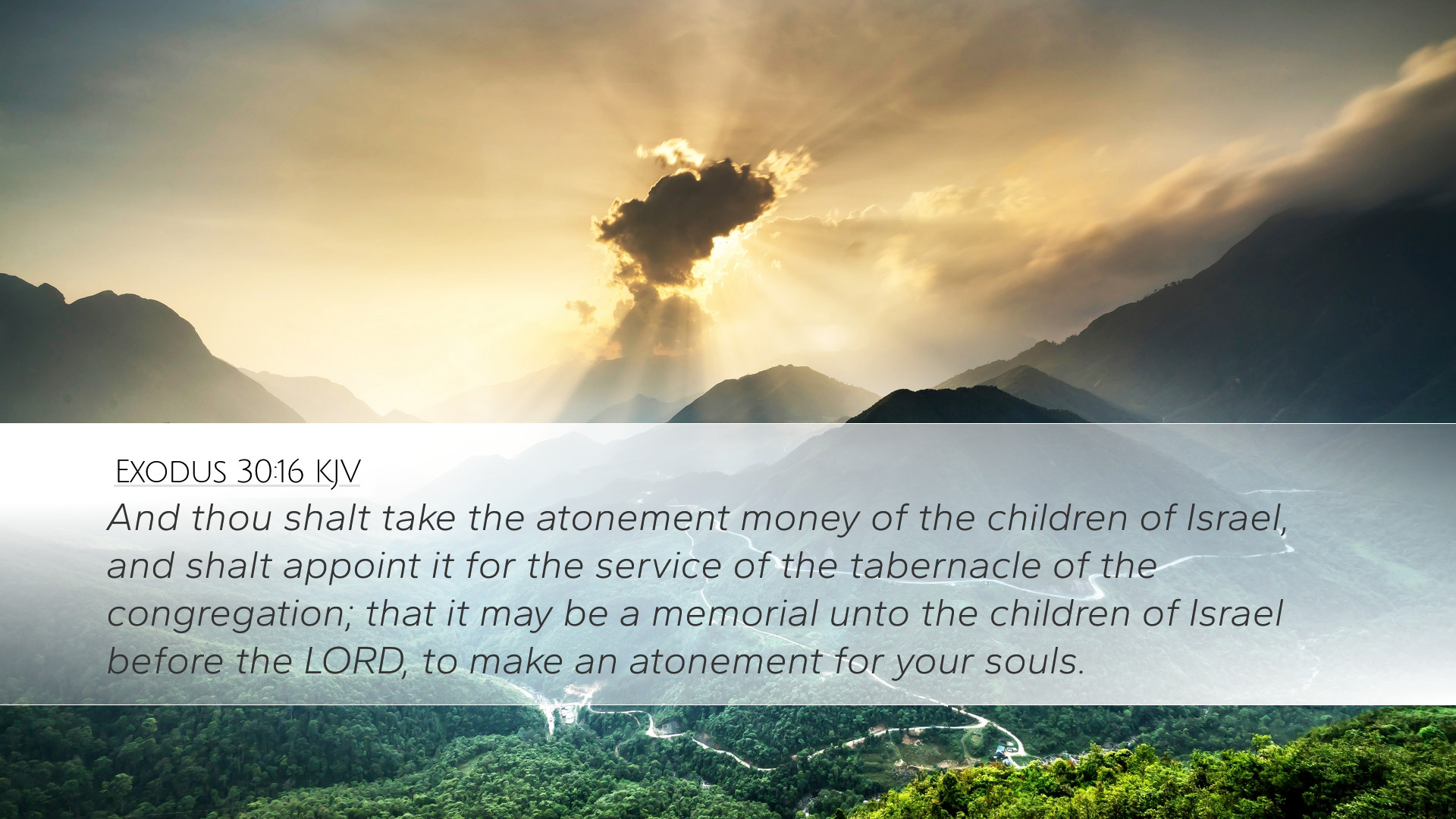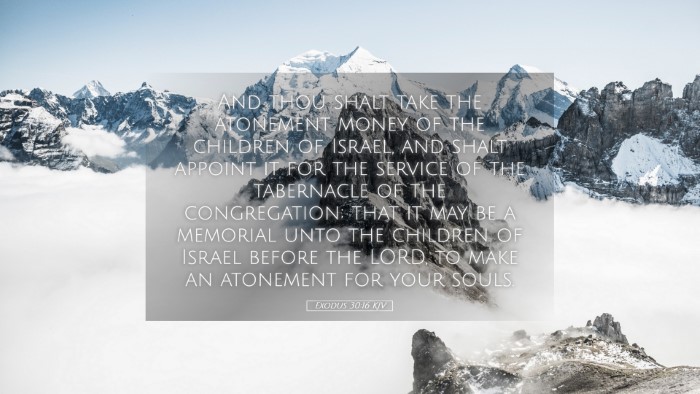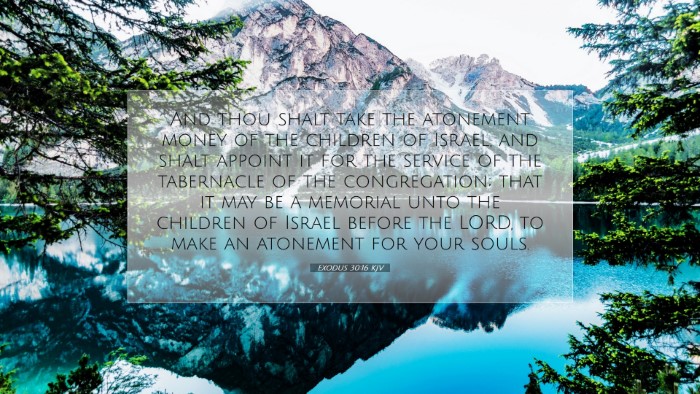Exodus 30:16 Commentary Summary
Exodus 30:16 states: "And thou shalt take the atonement money of the children of Israel, and shalt appoint it for the service of the tabernacle of the congregation, that it may be a memorial unto the children of Israel before the Lord, to make an atonement for your souls." This verse is integral to understanding the principles of atonement, sacrifice, and communal responsibility in the Old Testament.
Context and Importance
This verse follows the detailed instructions God provided to Moses concerning various elements of worship and the establishment of the priestly system. The atonement money (also known as the half shekel) symbolizes the people's collective responsibility for sin and the need for atonement as part of their covenant relationship with God.
A key point of this verse is its focus on communal atonement, reflecting the idea that each individual contributes to the collective spiritual health of the community. This collection was mandated as a way for the Israelites to acknowledge their need for divine grace and mercy.
Insights from Matthew Henry
Matthew Henry emphasizes the importance of atonement in his commentary, noting that this verse reveals God's provision for redemption. He indicates that the half shekel serves as a standard for every Israelite, regardless of wealth or status, thus highlighting equality in the need for atonement. Henry articulates that:
- The atonement money illustrates the cost of sin: Every individual must recognize their personal need for atonement, which is a prerequisite for a right relationship with God.
- Fundamental equality: This collection underscores the idea that forgiveness and grace are universally applicable, breaking down societal barriers.
- Service to the community: The money collected was directed towards the tabernacle's service, signifying the communal aspect of worship and the importance of supporting the means through which God's presence dwells among His people.
Insights from Albert Barnes
Albert Barnes provides a detailed exposition of the significance of atonement money in the narrative context of Exodus. He highlights that:
- The connection to redemption: Barnes explains that the atonement money serves as a remembrance of God's deliverance of Israel from Egypt, reinforcing the theme of redemption that runs through the narrative.
- Spiritual implications: The idea of atonement is linked not only to physical salvation but also to spiritual renewal. The act of giving signifies an acknowledgment of sin and reliance on God’s grace.
- Memorial Aspect: The collection is portrayed as a "memorial" for future generations, which underscores the importance of remembering God’s workings in their lives. This aspect of memorialization calls for ongoing reflection in the community about God’s faithfulness.
Insights from Adam Clarke
Adam Clarke delves into the practical and theological implications of the atonement money. He notes that:
- Divine Order and Organization: Clarke emphasizes that God establishes a system of order in worship, where every individual must contribute. This underscores a structured approach to spiritual and communal life.
- Symbolism of the Half Shekel: The symbolic nature of the half shekel reinforces ideas of completeness and the need for a balance in spiritual economy. The term "half" suggests incompleteness on an individual level that can only be made whole through communal atonement.
- Future Generational Significance: Clarke also mentions the continued relevance of this practice, advocating that future generations must understand the principles behind their rituals to maintain their faith and community integrity.
Theological and Pastoral Applications
For pastors, theologians, and students, Exodus 30:16 is rich with theological implications:
- Community and Individual Responsibility: This verse invites reflection on how congregations today engage in communal acts of worship and atonement. It challenges contemporary believers to consider their communal responsibilities before God.
- Grace and Redemption: Understanding the atonement money can enhance theological discussions around grace. It models a biblical pattern that redemption is available to all, which becomes a cornerstone of Christian faith.
- Continued Relevance of Sacrifice: The principle of sacrifice as an act of remembrance is critical in understanding both Old and New Testament teachings. This can inform preaching and teaching about the significance of perseverance in the faith amidst a culture that often overlooks the weight of sin.
Conclusion
Exodus 30:16 serves not only as a historical mandate for the Israelites regarding atonement but also as a rich source of reflection for modern believers. By drawing from the insights of respected commentaries, pastors and theologians can appreciate the layers of meaning in this verse, connecting ancient practices with contemporary faith experiences.


